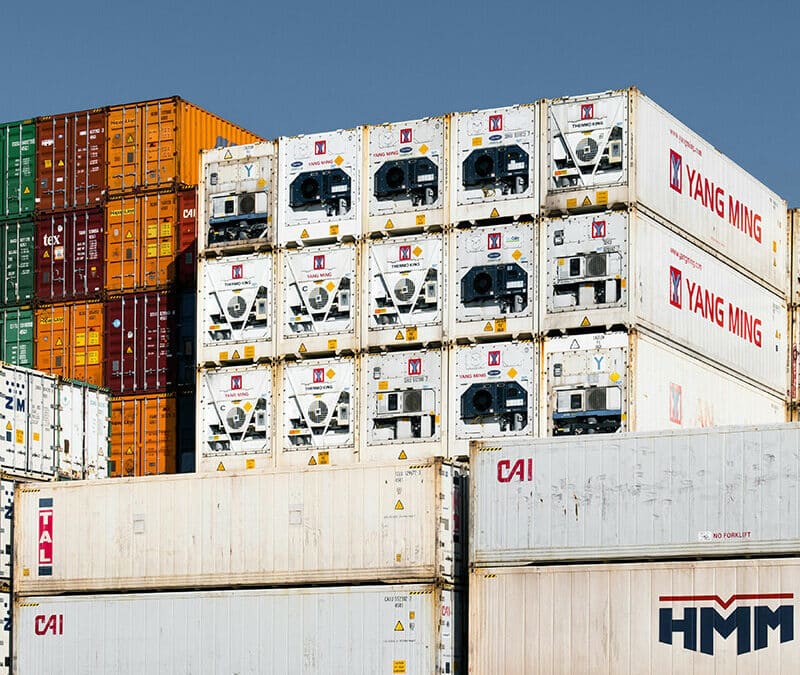Transporting food by sea leaves no room for error. As goods travel thousands of nautical miles, the only thing that protects their freshness, quality, and value is properly prepared refrigerated containers. Their role does not end with ensuring optimal temperature. They are part of a well-designed system that works like a finely tuned mechanism.
Food transport requires reliability. Refrigerated containers are one of the basic tools for shipping companies that face the challenges of the global supply chain on a daily basis. Their use ensures refrigeration continuity. It eliminates risk and guarantees accurate monitoring of every stage of the journey, from loading to delivery to the final recipient.
Professional cargo preparation. Basics of refrigerated food transport by sea
Before a container sets sail, every detail, no matter how small, must be taken care of. The process begins with selecting the right type of container. A refrigerated container ( reefer) guarantees stable temperature conditions even during long layovers in ports.
When preparing foodstuffs for sea transport, precise control of temperature, humidity, and often ventilation is essential. Sensitive products such as meat, dairy, fish, and fresh fruit require individual parameters that must be closely monitored. A professional freight forwarder will provide real-time monitoring of refrigeration parameters.
Sea freight with quality control. Safety that travels with your cargo
Sea transport is not just about moving containers from port A to port B. Its success is based on logistics and the expertise of professionals who often work around the clock. This gives customers whose goods are being transported the assurance that their products will reach their recipients safely, fresh, and in compliance with applicable regulations
Shipping tailored to your needs, i.e. personalization of sea transport
There is no one-size-fits-all shipping solution for all food products. The process of transporting goods by sea must always be tailored to the type of goods, their life cycle, and the requirements of the target markets. For products with a short shelf life, it is not only the temperature at which the goods are transported that is important, but also the time, which can be reduced thanks to optimized routes and synchronization of unloading.
This is where the value of added services such as phytosanitary documentation, customs services, and export consulting comes into play. Because good transport is a combination of logistics, technology, and experience.
Food transportation by sea with Allcom
Sea freight requires careful planning, technology, and reliable partnerships. In the case of food products, it also involves responsibility for consumer health. That is why Allcom is constantly developing its refrigerated transport services, combining industry knowledge, proven procedures, and modern technical solutions. We help ensure freshness and safety in the sea transport of food.
